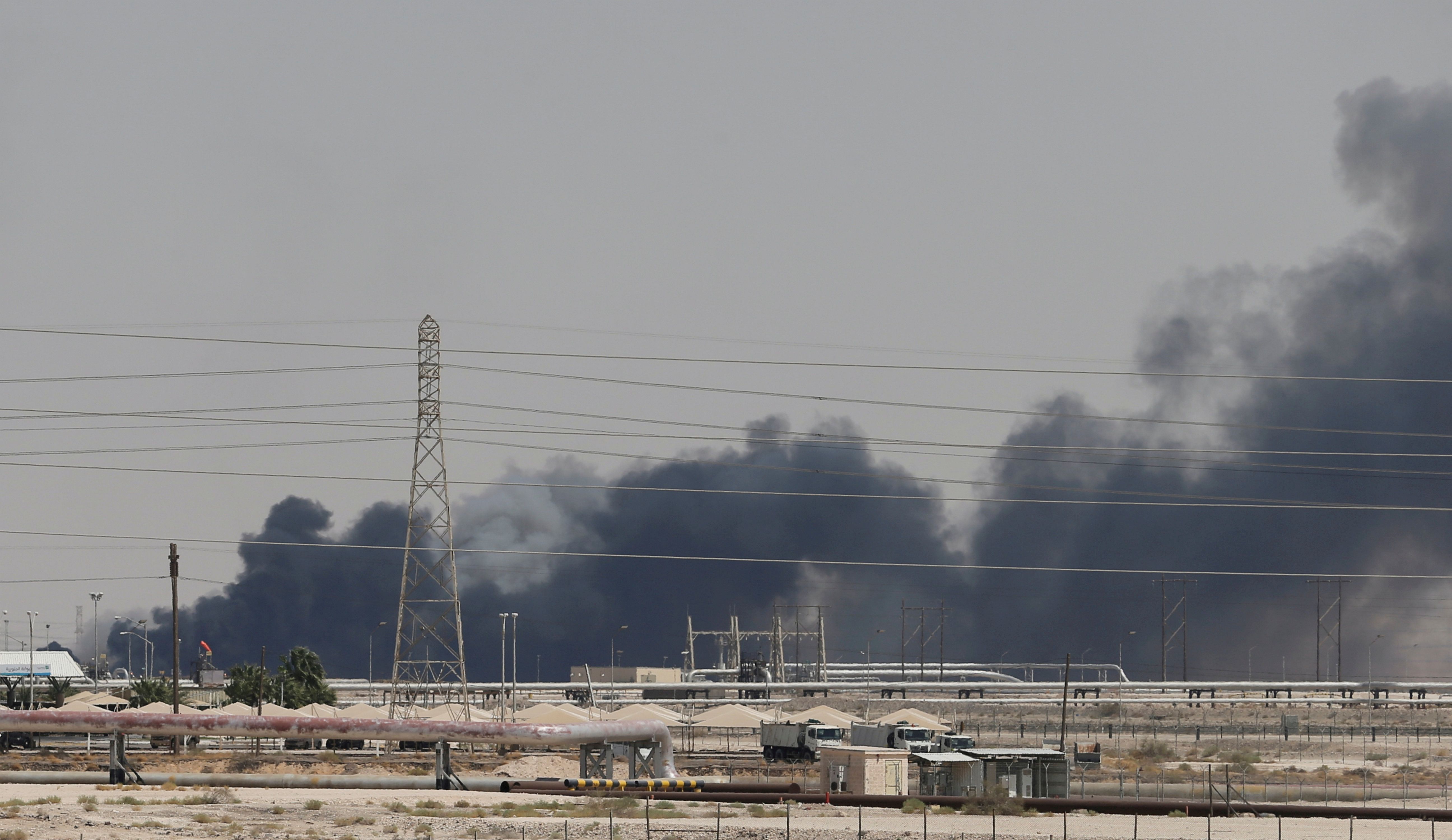Well, we still don't know who exactly launched the spectacular aerial attack on Saudi Arabia's main oil processing facility over the weekend, which knocked 5% of the world's oil offline and sent crude prices into their biggest one day jump in decades.
Houthi rebels fighting Saudi-backed government forces next door in Yemen continue to take credit for the attack, along with a string of earlier strikes deep into Saudi territory in recent months. But the precision and sophistication of this weekend's strike makes it likely that Iran, which backs the Houthis and despises Saudi Arabia, was involved. The US has blamed Tehran directly – and reportedly believes the attacks were launched from Iranian territory.
Meanwhile, oil prices are still up as traders wonder how long it'll take Saudi Arabia to get things back online, and whether we might see an escalation that imperils even more of the world's oil supply. Oil markets were already on edge over Iran's alleged attacks on oil tankers earlier this summer. And the fact that the Saudis, with the world's third largest military budget, weren't able to protect their vital energy infrastructure doesn't exactly inspire confidence.
Big choices loom for all involved.
President Trump is famously averse to military action abroad, and he knows that escalating with Iran would push oil prices higher, dealing a blow to the US economy right as he revs up his re-election campaign. But after declaring the US "locked and loaded," doing nothing could send a signal that the Iranians, or their proxies in Yemen and elsewhere, are free to continue raising the military temperature around the world's most sensitive oil chokepoints without pushback from the US.
The Saudis have hinted they will respond, but so far they're letting Washington do most of the talking about who was responsible. If the Saudis do pull the trigger themselves, they'd have to decide whether to hit Iranian territory directly, risking a major regional war, or to hit Iranian proxies in Yemen, a far lower-stakes move (for everyone except the Yemenis.)
The Iranians are doubtless pleased that the attack sent shockwaves through global energy markets, foreshadowing what would be at stake if the US or Saudi were to launch a broader regional war against Iran. They also will be delighted to have learned the limitations of Saudi Arabia's US-built air defenses. But Tehran's strategy here is still a gamble: ratcheting up tensions in the Gulf is meant to either scare the US into reentering the nuclear deal that it abandoned in 2017, or else convince the Europeans to provide real help to Iran's moribund economy. So far, neither of those things has happened.
A Big Apple Wildcard: For weeks there have been rumors that President Trump and Iranian president Hassan Rouhani could meet on the sidelines of the upcoming UN General Assembly in New York, in what would be the first encounter of US and Iranian leaders since before 1979. Tehran says no meeting can happen while US sanctions on Iranian oil are still in effect. And the Trump administration is all over the place on whether there would be "preconditions "for a meeting or not. But if the Iranians can spin an encounter as a concession following this stunning hit on Saudi Arabia, and if Trump can frame it as a decent photo-op exploration of a huge "deal," it just might happen.
Yes, that horrific screeching and wailing sound you hear right now is John Bolton tearing out his own mustache just thinking about it.
